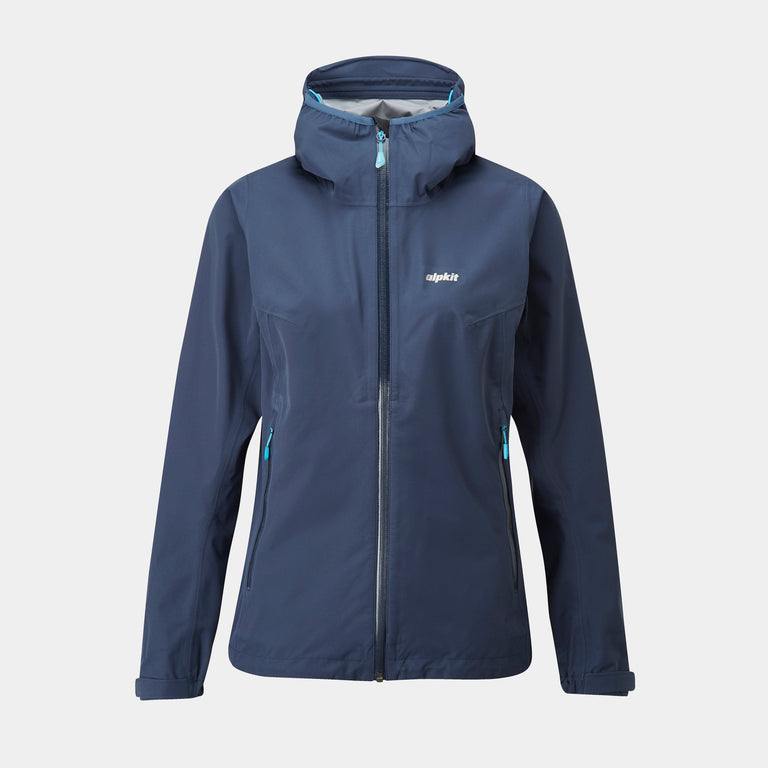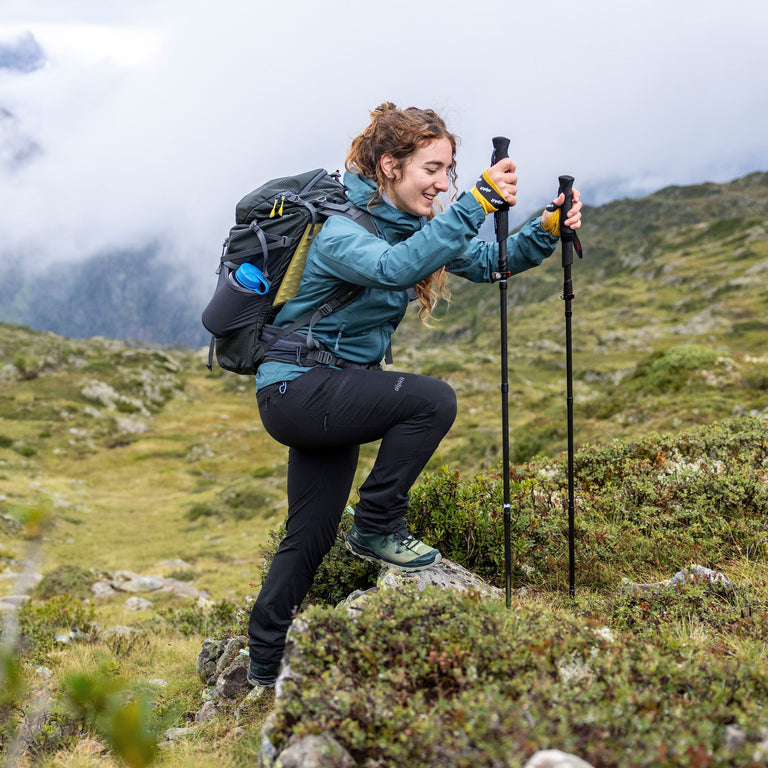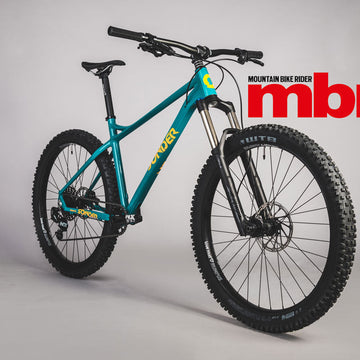
Stay dry on your ride with lightweight, waterproof shells designed for cyclists. Learn how to choose the right shell for all conditions.
Address the uncertainty of an all day ride with an outerlayer that keeps you dry and comfortable through wind and rain.
Comfort while cycling means staying warm without overheating, staying dry without feeling clammy, and being able to move freely. It’s a balance of protection and breathability. When you achieve this, you will want your ride to go on forever.
Do you need a waterproof or a windproof for cycling?
A shell is an outer layer designed to protect you from the elements while allowing your body to breathe. It’s part of a technical clothing system that includes base layers and mid-layers, each playing a role in keeping you comfortable.
A waterproof shell provides the most protection, so is most appropriate for longer more demanding rides. However when the good weather has set in and you just need something to keep off the windchill as you descend the Bealach na Ba in the setting sun, a windproof offers as unparalleled sense of freedom.
Choosing a cycling waterproof: a checklist
Environment: Cycling takes us through wonderful places. It is such an efficient means of transport that you can pass through multiple environments in a day. Whether rolling along a sheltered valley, climbing 2000 metres over a snowy mountain pass or chancing a week cycle touring around the Scottish Islands, a good shell gives you the reassurance you can keep going no matter what the weather is doing.
Weather: Rain, wind, and temperature fluctuations can quickly change your comfort level. A great shell adapts to these changes, keeping you dry and protected.
Intensity: Cycling is aerobic and you generate heat quickly. Your cycling waterproof should be breathable for comfort. Climbing a steep hill generates more body heat than cruising on a flat road. Your shell should help manage this heat effectively.
Carrying a cycling rucksack or hydration pack: Cyclists on an adventure often wear a cycling rucksack or hydration pack. It is convenient for quick access to snacks, on the go drinks and trail repairs when you don't want to use bike luggage. However a rucksack can cause additional zones sweating and discomfort. If you like wearing a rucksack when cycling choose a shells with good ventilation and fit.
Season: It's windy and rainy all year round so a waterproof is a good longterm investment in your cycling comfort. With the shorter days in winter reflective patches or detailing adds an element of safety to your on road presence.
Fit: A well-fitted outerlayer provides better protection and comfort. It should allow movement without being too tight or too loose. Cycling specific outerlayers will have longer arms and back so that everything sits in the right place while you are riding.
Duration: The longer you are out on your bike the more chance you are going to encounter wind or rain. Hopefully it isn't going to last too long, and you will be able to stash it away. As always with cycling, carrying space is limited and the more you add the more it will interfere with how your bike handles. Look for waterproofs the compress down nice and small, but if you are on a committing ride be careful this is not at the expense of features such as a decent hood.
Benefits of the right shell
Choosing the right shell, wether this is a full waterproof or a windproof will enhances your comfort, safety, and overall riding experience. It helps regulate your body temperature, protects against the elements, and provides freedom of movement.
A good shell is part of your broader layering system. The base layer wicks away sweat, the mid-layer insulates, and the shell protects against wind and rain. This is a proven system for keeping you comfortable in grotty or fluctuating conditions.
With appropriate layering you can find that you don't need a heavy, fortress like mountaineering waterproof just to stay comfortable on your bike. All three layers will work in harmony and provide a much more flexible solution over the course of your ride. Our tip is to never think of one piece in isolation.
Material choices
- Breathable hardshell fabrics: Most waterproofs and windproofs are constructed by some form of hardshell fabric. 20, 30 years ago most people would have referred to this style of jacket as a Gore-Tex, but today there is a much greater choice offering the same, or better performance with lower environmental impact. For cycling we want a waterproof that is highly breathable and waterproof.
- Softshell: A softshell does not provide the same level of waterproofness in prolonged rain as a hardshell, but it excels at comfort and breathability with good wind resistance and flexibility. It is great for dry, cool conditions but can also be effective even in the rain with the right combination of layers to keep you comfortable.
Environmental considerations
Our hardshells have gone through a bit of a revolution in recent years. There are more and more fabrics becoming available that have been made from recycled fibres with PFC free DWR, and processes being devised to recycle clothing at the end of their lifetime. One thing that hasn't changed, is that the best thing we can do for the environment is keep our gear going for as long as possible. This means looking after it, with frequent washing, reproofing and maintenance.
Our cycling waterproofs and windshells
Whether climbing on Saturday, trail running on Sunday, if there is one activity that unites us it is cycling. Here are some staff and customer top picks which work well when you are on your bike:
- Gravitas Jacket: Ultra-lightweight waterproof and as packable as a windproof, perfect for changeable weather. Gravitas has a lightweight 3-layer construction weighing just 200g. The outer fabric is made from 100% recycled nylon. With 20K MVTR breathability and 20K HH waterproofing and a PFC-free DWR treatment.
- Pulsar Jacket: This could be your new best friend on and off the bike, screaming down singletrack or bouncing across rutted moorland. A 2.5-layer lightweight, waterproof, breathablehalf-zip jacket with 20k/20k waterproofness and breathability.
- Arro windshirt: A lightweight windproof jacket conceived for hard use with a soft touch, non-rustle fabric, anatomically cut for mobility. Ride like the wind rather than get blown about by the wind.
Enjoy your ride
Choosing the right shell is fundamental to staying dry and warm on extended rides. In combination with your other layers the right shell will help you maintain the perfect balance of comfort, protection, and flexibility. With the right shell, every ride can be a joy, regardless of the weather or terrain.









![Gravitas [Mens]](http://eu.alpkit.com/cdn/shop/files/mens-gravitas-2025-chilli.jpg?v=1765566317&width=768)
![Gravitas [Mens]](http://eu.alpkit.com/cdn/shop/files/gravitas-location-1-RETOUCH.jpg?v=1765566317&width=768)
![Gravitas [Womens]](http://eu.alpkit.com/cdn/shop/files/womens-gravitas-reef.jpg?v=1764270267&width=768)

![Fortitude [Mens]](http://eu.alpkit.com/cdn/shop/files/fortitude-mens-2025-alder.jpg?v=1768849690&width=768)

![Fortitude [Womens]](http://eu.alpkit.com/cdn/shop/files/fortitude-womens-2025-alder.jpg?v=1764270237&width=768)

![Balance [Mens]](http://eu.alpkit.com/cdn/shop/files/balance-mens-2025-reef.jpg?v=1768938614&width=768)
![Balance [Mens]](http://eu.alpkit.com/cdn/shop/files/Balance-mens-1.jpg?v=1768938614&width=768)
![Balance [Womens]](http://eu.alpkit.com/cdn/shop/files/balance-womens-2025-black.jpg?v=1768938686&width=768)
![Balance [Womens]](http://eu.alpkit.com/cdn/shop/files/Balance-womens-3.jpg?v=1768938686&width=768)

![Definition [Mens]](http://eu.alpkit.com/cdn/shop/files/Definition-men-2.jpg?v=1764357328&width=768)

![Definition [Womens]](http://eu.alpkit.com/cdn/shop/files/Definition-women-3.jpg?v=1764357395&width=768)





